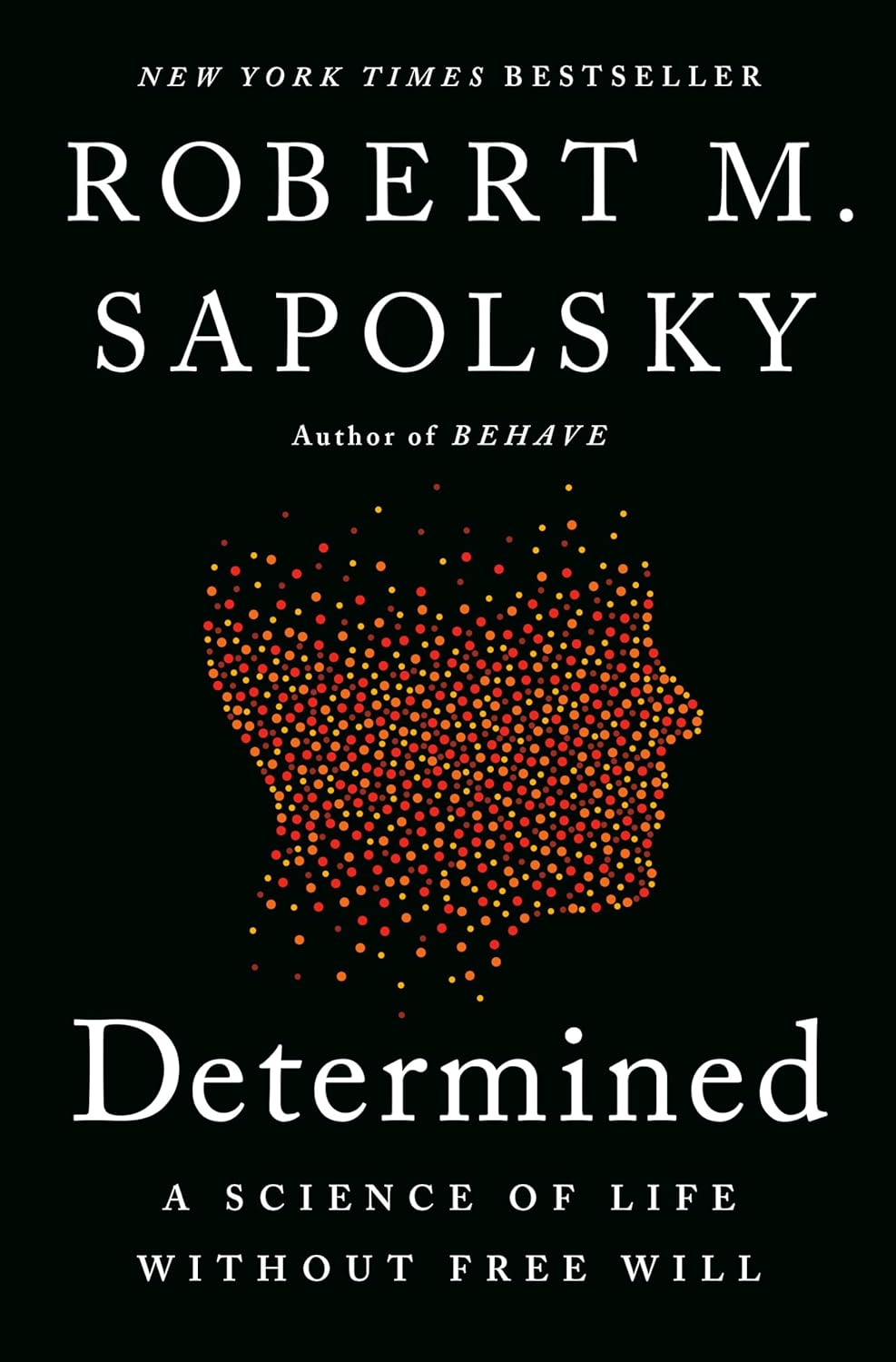Neurology Prof Robert Sapolsky Insists There Is No Free Will
We are controlled by our genes, by our prefrontal cortexes, and we can’t choose to change anything. Or can we?
In an interview with Marjorie Hecht and Jan Ritch-Frel at Real Clear Science, Stanford professor of neurology, Robert Sapolsky discusses the contention of his popular new book, Determined: A Science of Life Without Free Will (Penguin 2023), that there is no free will. He is convinced that society will be more humane if we accept his view. For example:
Obesity is not influenced by personal choice
Robert Sapolsky: A great example is the recognition that obesity is a biological disorder, rather than some sort of failure of Calvinist self-discipline. It is a biological disorder that is profoundly sensitive to psychological state and social context, but it is nonetheless biological.
To give the most dramatic example, if someone has a mutation in the leptin receptor gene, their brain will simply not process food satiation signals, regardless of how much willpower they have. Currently, stigma about weight is one of the most persistent prejudices in society, and findings like this are just beginning to change attitudes toward obesity.
Marjorie Hecht, Jan Ritch-Frel, “Robert Sapolsky: Are We Better off Accepting That There’s No Free Will?,” RealClearScience, September 5, 2024
Sadly, obesity is a global health problem, associated with many medical disorders. The belief that simply deciding to get in shape won’t work because there is no free will might seem like wonderful news to the fat acceptance movement. But nature does not care about acceptance movements.
However, in general, nature is not stopping us. Many people who choose to lose weight do. We can, for example, ignore brain signals and look for other evidence, like how much food we have already eaten. It is no accident that traditional thinkers have associated free will with the power of reason.
Why punish crime?
Q: What in your research led you to volunteer as a witness for capital trials, and what did your experiences lead you to conclude about making a social impact through your research?
Sapolsky: … You consider a defendant who has done something horribly damaging, and there’s the option to think of their behavior as an index of their questionable moral worth, or as a measure of the damage that their own nervous system sustained over their lives. So my job is to try to get juries to think the latter rather than the former, to teach them the science that leads one to that conclusion.
In terms of what impact I’ve had—it’s been almost entirely futile; we “lost” 11 of the 13 cases I’ve worked on. The jury sits there and nods their heads in the affirmative when you’re telling them how the frontal cortex works… and then when they go into the jury room and look at the pictures of the corpse, they come back with the maximal sentence.
Hecht, Ritch-Frel, “No Free Will?”
Capital punishment is a first-order moral question. Thus, it confuses many questions around issues of fact. The question we should focus on here is, if there is no free will, should there be any punishment at all? What should we do with dangerous offenders?
 Image Credit: valiantsin -
Image Credit: valiantsin - The denial of free will favors a totalitarian approach to punishment, as neurosurgeon Michael Egnor has noted:
That is just the approach the Soviet Union took to political dissidents. Instead of dealing with political dissent as a legitimate expression of different viewpoints or even as a violation of criminal law, Soviet authorities medicalized deviance. Dissenters—who were criminals in the Soviet system—we treated as if insane and were institutionalized involuntarily in Soviet psychiatric hospitals until they were “cured.” It is well known among defense lawyers in the United States that successful insanity defences often result in a longer period of institutionalization than the defendant would have received in prison because they can’t be released until they’re “cured.” …
The most frightening thing is … the remaking of the justice system into a system of “health care” (i.e. disease control) in which our actions are labeled diseases rather than choices. It’s Orwellian: with the denial of free will, the Justice Department would become the Center for Disease Control.
Michael Egnor, “No free will means no justice,” Mind Matters News, May 31, 2020
An even bigger issue is precrime, as envisioned in Canada. If there is no free will, one could be detained by government for belonging to a category of people who might commit a crime.
Where the neuroscience argument against free will collapses…
Captured right here:
Q: Can you discuss how an individual can differentiate right from wrong but be “organically incapable” of appropriately regulating his or her behavior? What happens in the prefrontal cortex to cause this?
Sapolsky: The prefrontal cortex (PFC) can inhibit and restrain emotional impulses: If you are in a situation where you are tempted to do something unethical yet manage to resist, it is because of the PFC. Thus, any circumstance that damages, weakens the PFC makes that sort of self-regulation more difficult. Hecht, Ritch-Frel, “No Free Will?”
So we have it on Sapolsky’s determinist opinion that no whole human being makes a decision not to do something wrong or harmful. Only the prefontal cortex, which has no opinion, does so.
That makes no sense. But it’s easy to see why totalitarians love this stuff because they very much want to take responsibility for everything.
Note: Michael Egnor and I are the authors of The Immortal Mind (Worthy 2025), which will offer a defense of free will.
